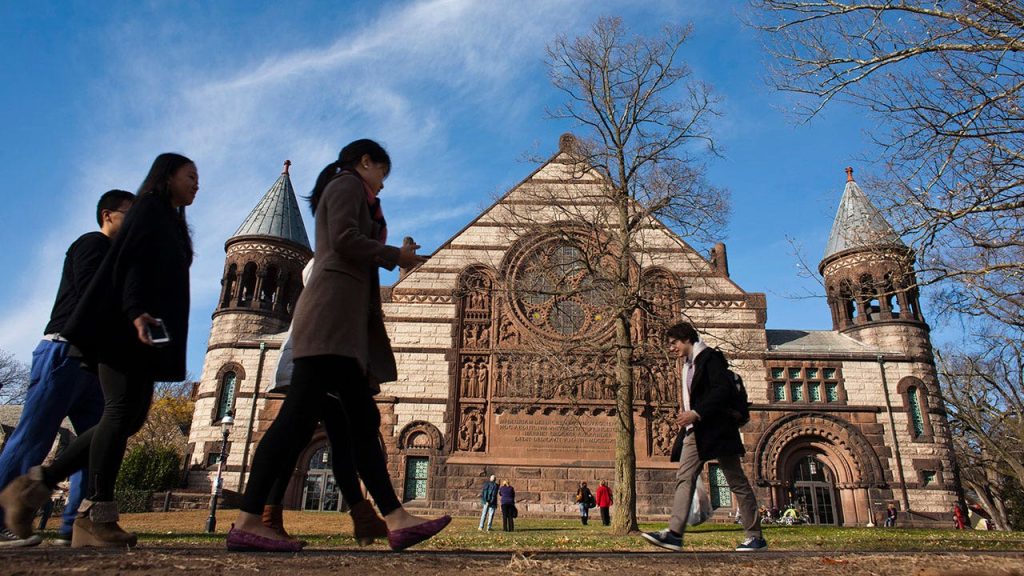The recent death of a Princeton University undergraduate has sparked significant discussions surrounding mental health crisis management in Ivy League institutions. Lauren Blackburn, a 23-year-old student majoring in English, was discovered deceased in Lake Carnegie after being missing for several days. This tragic incident marks the eighth undergraduate death at Princeton since 2021, highlighting escalating concerns about student well-being in elite academic settings. Experts are calling for enhanced mental health resources as the pressures associated with prestigious university admissions continue to mount.
| Article Subheadings |
|---|
| 1) Overview of Recent Tragedy at Princeton |
| 2) The Toll of Mental Health Issues in Ivy League Schools |
| 3) The Call for Enhanced Mental Health Resources |
| 4) Challenges Faced by Ivy League Students |
| 5) The Need for Improved Support Systems |
Overview of Recent Tragedy at Princeton
Lauren Blackburn’s untimely death has resonated deeply within the Princeton community and beyond. A bright student from Indiana, Blackburn was pursuing a degree in English with a minor in creative writing. Discovered in Lake Carnegie, her body was found after several days of being reported missing, shedding light on critical mental health issues prevalent among students in competitive academic environments. Although authorities have not disclosed the official cause of death, community members have expressed concern over the possibility of a suicide, especially in light of Blackburn being the third undergraduate student to die at Princeton in a span of two years, with six out of eight deaths since 2021 categorized as suicides.
The Toll of Mental Health Issues in Ivy League Schools
Ivy League institutions are often perceived as epitomes of excellence, attracting bright students from diverse backgrounds. However, the intense pressure associated with academic performance, coupled with competition, can trigger severe mental health crises. Experts assert that the environment in these elite schools is uniquely challenging, with students feeling constant pressure to succeed. According to reports, Blackburn’s death is not an isolated incident; it starkly underscores a troubling pattern of mental health struggles among Ivy League students. As these institutions grapple with the mental well-being of their students, the deaths of individuals like Blackburn remind us that the burden of expectation can be overwhelming.
The Call for Enhanced Mental Health Resources
In response to the increasing number of mental health crises, experts are advocating for Ivy League colleges to allocate more funding towards mental health resources. Despite these institutions having counseling services and support groups, mental health professionals argue that the resources available are often insufficient to meet the overwhelming demand from student populations. Ivy Ellis, a licensed clinical social worker, remarked that resources are inadequate given the number of students requiring support. The mental health professionals emphasize that financial limitations must be addressed to create a supportive environment where students can seek help without stigma.
Challenges Faced by Ivy League Students
Students in Ivy League schools face distinct challenges that contribute to their mental health struggles. The transition from high school to university can create feelings of inadequacy; many students who were once high achievers may feel like “small fish in a big pond.” The expectations placed upon them can lead to heightened anxiety and stress, creating an environment ripe for mental health issues. Dr. Victoria Grinman, a psychotherapist, notes the unique pressures that characterize Ivy League institutions, which differ from those experienced in less competitive college environments. This context has led to increased calls for broader discussions about the specific mental health needs of these students.
The Need for Improved Support Systems
As the student community continues to seek better mental health support, experts recommend early intervention strategies to combat the surge of mental health issues before they escalate into crises. Implementing systems that foster open conversations about mental health, reducing stigma, and actively engaging with students in need can create a safer environment where students feel supported. Colleges also have an opportunity to rethink the structure and availability of resources dedicated to mental well-being, placing a foundational emphasis on preventing crises before they escalate into tragedies.
| No. | Key Points |
|---|---|
| 1 | Lauren Blackburn’s death sparked renewed discussions about mental health at Ivy League universities. |
| 2 | Blackburn was the third undergraduate to die at Princeton in two years, emphasizing a troubling trend. |
| 3 | Experts advocate for increased funding for mental health resources at elite institutions. |
| 4 | Ivy League students face unique pressures, which can exacerbate mental health issues. |
| 5 | Early intervention and stronger support systems are recommended to support student well-being. |
Summary
The death of Lauren Blackburn serves as a grave reminder of the mental health challenges facing students in Ivy League schools. The critical conversations that have emerged highlight the growing need for enhanced mental health resources and systemic changes within these illustrious institutions. As discussions continue, it is paramount for Ivy League schools to prioritize student well-being, thereby fostering an environment conducive to both academic excellence and mental health.
Frequently Asked Questions
Question: What is causing the rise in mental health issues among Ivy League students?
The rise in mental health issues among Ivy League students can be attributed to intense academic pressure, high expectations, and the competitive environment that characterizes these prestigious institutions. The transition from high school to a highly competitive college can lead to feelings of inadequacy and anxiety.
Question: How can Ivy League schools improve their mental health resources?
Ivy League schools can improve their mental health resources by increasing funding for counseling services, implementing early intervention strategies, and building a culture that encourages open discussions about mental health without stigma.
Question: Are mental health crises unique to Ivy League schools?
While mental health crises are not exclusive to Ivy League schools, the specific pressures and expectations associated with these institutions can exacerbate mental health issues among students, making it a significant concern in elite academic settings.


